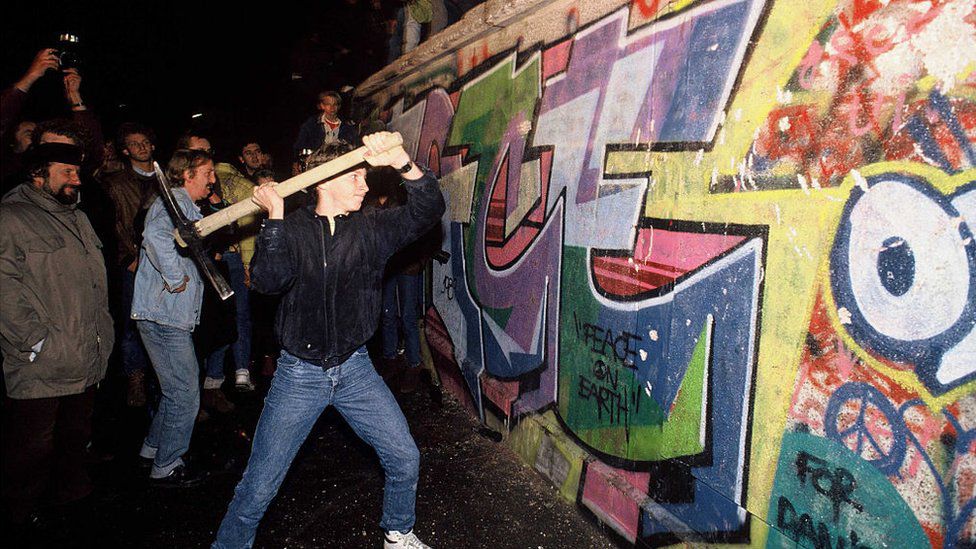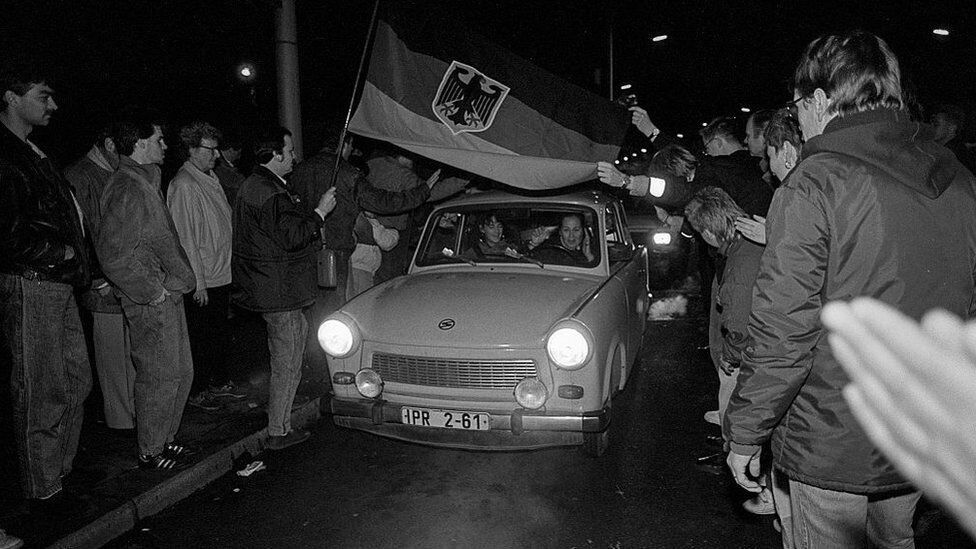Every day, around the world, journalists ask thousands of questions that often fall almost immediately into oblivion, buried by the hectic informational pace of the internet age, in which the news you heard 10 minutes ago is displaced from your mind you are reading now.
Sometimes, however, there are stubborn questions that stay there, that make history.
LOOK: The suicide of an “effeminate” young man in China amid the government’s campaign to make men “more manly”
One of these was formulated by the Italian Riccardo Ehrman, who died this Tuesday in Madrid at the age of 92, and who he was known as the journalist “who brought down” the Berlin Wall.
Being a correspondent for the agency Ansa, Ehrman attended a press conference on November 9, 1989, given by the spokesman for the government of the German Democratic Republic (GDR), Günter Schabowski.
- Billie Eilish: “Exposing me to pornography at age 11 damaged my sex life”
- Who is Cristina Junqueira, the first multimillionaire in Latin America who founded a company from scratch
- “My husband cut off my hands with an ax”
There, Ehrman asked him to explain the authorities’ plans to allow citizens to travel outside of communist Germany. The official’s response, pressured by the journalist, led to the fall of the Berlin Wall in a few hours.
A boring press conference that made history
During the weeks leading up to that press conference, citizens in East Germany had held numerous demonstrations against the communist government, demanding in the streets their right to freedom of expression, as well as the possibility of being able to travel wherever they wanted.
Communist leader Erich Honecker had resigned the month before.
On November 4, more than half a million protesters took to the central Alexanderplatz to demand reforms in the government.
The authorities had announced a draft of a plan to relax border controls.
The details of it were expected to be offered on November 9 at a press conference in which the results of a meeting of the Communist Party that governed the country would be announced.
What would otherwise have been a boring press conference turned into a shocking fact when Ehrman asked Günter Schabowski about lifting travel restrictions.
The official had not been informed about the plan and until that moment he had not made any reference to it. It was the journalist who asked him.
“You mentioned mistakes. Don’t you think it was a big mistake to introduce the draft of this travel law that you guys announced a few days ago?” Ehrman asked.
After rummaging through his notes for a while, Schabowski responded hesitantly before announcing: “Private trips out of the country can now be made without any prerequisites.”
That change was scheduled to be carried out overnight, but when pressed on when it would occur, the official said: “Right now, immediately.”
A few hours later, the Berlin Wall had fallen.

Years later, Ehrman said he immediately understood the effect Schabowski’s words would have and sent an urgent message to the headquarters of Ansa in Rome: “The Wall is gone”.
The announcement quickly spread to East Germans, who flocked to the Berlin Wall to the surprise of border guards, who opened checkpoints to allow people to pass.
From Florence to Madrid
In announcing the news about the death of the former correspondent, the agency Ansa He said on social networks: “Goodbye to Riccardo Ehrman, who brought down the Wall of Belín.”

The agency noted that Ehrman had worked in East Berlin in the mid-1970s and returned to that position upon completing an assignment in India in 1985.
The son of a family of Jewish origin from Poland, Ehrman was born in Florence on November 4, 1929.
At the age of 13, he was sent to a concentration camp for Jews created by Benito Mussolini. in Ferramonti, in southern Italy.
Ehrman’s widow told Ansa that the journalist died in Madrid, the city where he last worked before retiring.
Ehrman was regularly interviewed by the Italian and German media about the fall of the Berlin Wall, that moment when he was partly the protagonist of European history.
________________________________
- Next pandemic could be “worse or deadlier,” warns Oxford / AstraZeneca vaccine creator
- How the new Super Green Pass complicates social life for the unvaccinated in Italy
- Flight MH370: can one of the great mysteries of aviation finally be solved?
- Plumber finds money hidden in the wall of a megachurch (and could have solved a mysterious robbery from 2014)
- They find dead a young Brazilian who was missing and was forced to dig her own grave
- US Congressman Releases Christmas Family Photo With Guns, Days After School Shooting
.

:quality(75)/cloudfront-us-east-1.images.arcpublishing.com/elcomercio/GI2DEMJNGEZC2MJVKQYDAORSGQ.jpg)


:quality(75)/cloudfront-us-east-1.images.arcpublishing.com/elcomercio/DQ4MLCPEJ5D5NC6BFXZJ37ENK4.png)

:quality(75)/cloudfront-us-east-1.images.arcpublishing.com/elcomercio/KHRSVXMA7FDZDJQ4YRQJMTBDDM.jpg)
